Westerns today have a lot of balls to juggle before even getting out of the gate. Like in horror movies, there are very specific tropes and beats westerns are expected to hit, yet unlike horror, westerns have always dealt with our nation’s past. They have consistently served as metaphors and microscopes for our current views.
Enter Hostiles, written and directed by Scott Cooper, based on a manuscript by the deceased screenwriter Donald E. Stewart (Missing). Hostiles attempts to reckon and wrestle with history, specifically our horrific treatment of Native Americans. This has, of course, been attempted before by John Ford, Kevin Costner, and Arthur Penn, among others, mostly with success. Though Cooper’s goals are lofty, the end result comes off lugubrious, arch, and self-satisfied.
Proceedings start off in 1892 with a bang as we witness the massacre of a farmstead family by Native raiders. Only one member, Rosalie Quaid (Rosamund Pike), the matriarch, survives. This section is visceral, vicious, and clear. It has an economy of filmmaking and storytelling that grabs your attention. Unfortunately, the forward momentum bogs down and never recovers.
We then move to a military fort in the New Mexican territory, where Captain Joseph Blocker (Christian Bale), close to retirement and a legend in the war between the Apaches and the white man, is told he is to escort his nemesis, Yellow Hawk (Wes Studi), to the leader’s ancestral home in Montana. Blocker balks, but faced with the loss of his pension, reluctantly agrees. He gathers together a team that includes, among others, his friend and right-hand man, Sgt. Metz (Rory Cochrane), a lifer schooled in, but tiring of, violence; Lt. Kidder (Jesse Plemons), fresh out of West Point; and Corp. Woodsen (Jonathan Majors), former Buffalo Soldier and Blocker’s loyal acolyte. They set out to Montana with Yellow Hawk, his daughter, son-in-law, and granddaughter. When they run into a traumatized Rosalee on their way, she joins their expedition.
At this point, any hope of originality or freshness is out the window. We know from the set up what is going to happen. And it does. Sworn enemies move toward mutual respect and a kind of love, and that would be fine. Good films have been made from obvious tropes. But the performances are Method to the point of distraction. (I’d give a Starbucks gift card to anyone who understands what Rory Cochrane is saying.) The score is overbearing, and the message is blazingly obvious and hammered home with dulling repetitiveness: the United States must apologize for its treatment of Native Americans, we must move on from the past, we must work together with mutual respect. All worthy sentiments. In fact, if there were two words that describe its themes, it would be Very Important. This slows the pace to a deadly crawl, where every scene is punctuated with Meaning.
Meanwhile, the screenplay is filled with bon mots like: “I’ve killed everything that’s walked or crawled. If you do it enough, you get used to it” or “When we lay our heads down here, we’re all prisoners.” Even at his best, Bale would have trouble investing these lines with any conviction, and this is not Bale in top form. Essentially his performance here can be boiled down to handsome brooding.
Also problematic is that the Native Americans become part of the background. Except for Yellow Hawk, the others have no personality. They generally stand by stoically and watch the action. And the movie makes the terrible mistake of portraying the Natives who work with and help the white characters as good guys, but any other Native encountered is a lunatic and dangerous menace.
There are bright spots here and there: the cinematography is gorgeous. This is a very good looking film, and if you do see it, this is absolutely meant for the theater. Watching it at home would not give the visuals justice. And Rosamund Pike manages to rise above the material and makes us feel the heartrending grief that Rosalee experiences and her will to punch past it.
But for the most part, Hostiles bites off more than it can chew. And it chews very, very slowly.

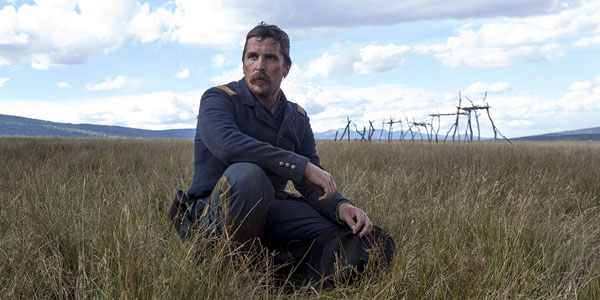
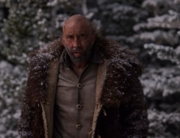
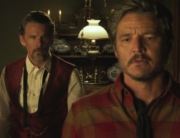
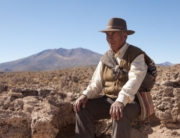
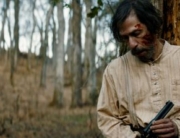











Leave A Comment